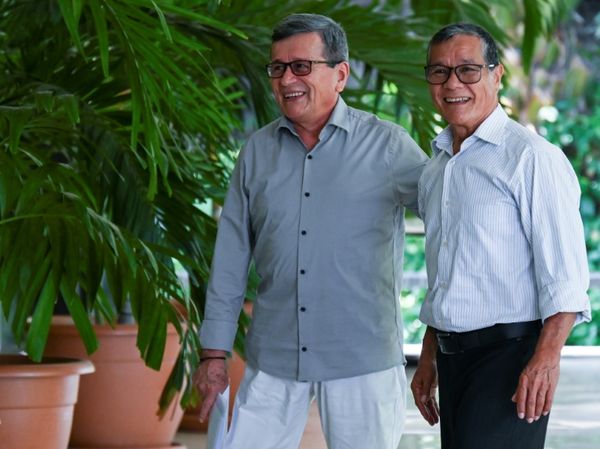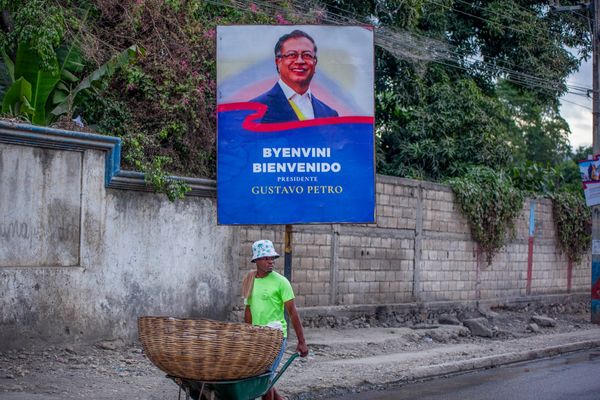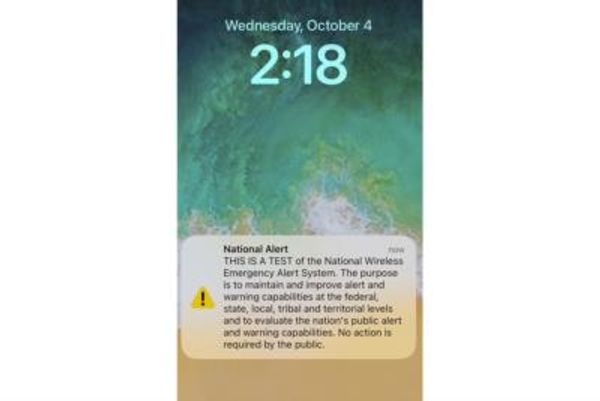
The bizarre goings-on at the State Library of Victoria (SLV) say quite a bit about the way the Andrews government’s instinct for authoritarianism has infiltrated the bureaucracy. They point to something deeper as well: the reemergence of censorship as a powerful cultural force.
The SLV is in the news after a directive from management was sent to library staff prohibiting them from wearing anything that “support[s] or promote[s] a particular political viewpoint”. Subsequently, front-of-house staff were instructed specifically not to wear Palestinian flag pins or even the watermelon badges that have come to signify support for the Palestinian cause.
Addressing the confusion, the library clarified publicly that Aboriginal or rainbow flag pins are fine, being examples of what it said it encourages: symbols that “support diversity and inclusion”.
So that’s interesting. The flag of one non-recognised nation is fine, the flag of another is not. Arguably, each stands for both (acceptable) inclusion and (unacceptable) political demands, but only one has been banned. We could pretend to not know why, but we all know the reason.
The library’s bigger censorship problem had already been brewing after its cancellation of a writing boot camp for teenagers, which it denied was due to the pro-Palestine views expressed by some of the writers it had engaged to participate.
Freedom of information requests and leaks have told a different story: in the lead-up, the SLV board and management were closely scrutinising the writers and discussing their public opinions. The lightning rod appears to have been self-described Lebanese-Turkish Muslim poet and novelist Omar Sakr. Sakr has been outspoken for a long time as an advocate for Palestinian human rights, but what exactly he said that triggered the cancellation is a mystery. His questions to the SLV about why his participation raised any concern over “child and cultural safety … at a time of heightened cultural sensitivities”, as he was told, have gone unanswered. As Sakr has pointed out, the record shows that the initial concern raised by an SLV staff member specifically referenced that Sakr is “of Muslim heritage” and that for some reason “might need some additional risk management”.
The theme for all this is Palestine. Since that subject is being contested in every space in the current fraught environment, it’s no surprise that cultural contexts have been dragged into the mess too.
However, it’s also not new. The Adelaide Writers’ Week furore — when major sponsors withdrew their support because two advertised speakers had expressed anti-Israel views and been labelled antisemites by the Israel lobby — well predated October 7.
The SLV, if it wasn’t busy being defensive, might argue that it’s hamstrung by adherence to the Victorian Public Service Code of Conduct, which demands that all public servants demonstrate the principle of “impartiality”.
“Impartiality” also being the word that has caught the ABC in its own cultural bind, as exemplified by its incoherent handling of the Laura Tingle and Antoinette Lattouf affairs.
Extreme binaries like Israel-Palestine will always generate more heat than light, nuance going out the window with the first gunshot — and no, I don’t think that’s much different in the digital age than it ever was through history.
Accepting that such a controversy will play big and stupid in the media and political realms, where we should pay attention is when it spills over into the spaces of our cultural institutions. There, lies danger.
“Libraries are about freedom”, the writer Neil Gaiman said, “freedom to read, freedom of ideas, freedom of communication. They are about education, about entertainment, about making safe spaces, and about access to information.”
For libraries you can substitute galleries, festivals, arts companies, public broadcasters, universities and academies. These are the safe spaces for creativity, thought, argument and provocation, a bedrock requirement for a free society.
When they are constrained by censorship — “the child of fear and the father of ignorance” as Laurie Halse Anderson accurately described it — they cannot serve their purpose. It’s as simple as that.
At one level, the SLV’s acts of censorship can be seen as a bureaucratic instinct gone mad, misapplying the management-speak language of modern-day political correctness to a context where it has no place whatsoever, ham-fistedly silencing art and political expression in the name of politeness. It is of a piece, in that sense, with the Sydney Theatre Company’s hopeless mishandling of the furore triggered by a few of its actors wearing keffiyehs on stage as an act of quiet solidarity.
At another level, it speaks to the peculiarity of the situation with Israel, where the shutting down of any expression of opinion that does not acquiesce in that country’s actions had become a default instinct of pretty much all Australian institutions, well before Hamas triggered the current war.
But really, this is not about technocratic inanity, nor Palestine in particular. It’s a sign of the times more broadly.
The USA is well into the book-burning phase of its descent from democracy. Proto-fascism is the proximate cause of the resurgence of censorship as a tool of control, but beneath that lies the disconnection and alienation — the complete collapse of community as a concept — which we can so easily now see in the insanity that’s gripping the place.
We’re on the same path, slower and less impassioned as usual. It’s not compulsory; we may, if we choose, pay heed to the warning signs. We can tell the library to reopen its doors.
What do you make of the State Library of Victoria’s decision to ban staff from wearing pins in support of Palestine? Let us know your thoughts by writing to letters@crikey.com.au. Please include your full name to be considered for publication. We reserve the right to edit for length and clarity.







